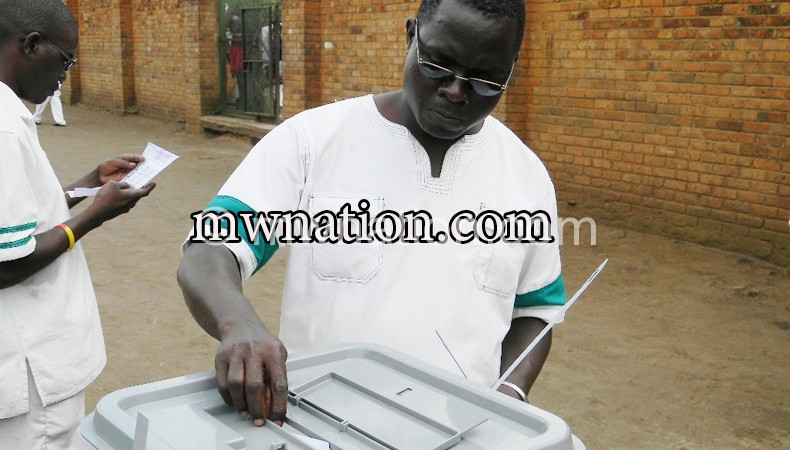EU mission explains election anomalies
The European Union 2014 Elections Observation Mission (EU EOM) has attributed wide ranging anomalies that characterised the May 20 Tripartite Elections results to lack of training, general fatigue of polling staff and complicated closing and counting procedures.
In its final report issued in Blantyre on Wednesday, the EU EOM explained that the challenges faced by the Malawi Electoral Commission (MEC) staff created a high number of mistakes and arithmetical errors that led to anomalies in reconciliation, in particular, with respect to filling in of result sheets.
 “Following a thorough assessment of the database and the scans, the EU EOM concluded that there was a significant number of anomalies in the results database,” reads the report in part. “[However] The anomalies found by the EU EOM in the MEC presidential results database had no tendency in favour of any particular party and were spread geographically over different districts, hence suggesting isolated cases of errors or anomalies rather than anything more systematic.”
“Following a thorough assessment of the database and the scans, the EU EOM concluded that there was a significant number of anomalies in the results database,” reads the report in part. “[However] The anomalies found by the EU EOM in the MEC presidential results database had no tendency in favour of any particular party and were spread geographically over different districts, hence suggesting isolated cases of errors or anomalies rather than anything more systematic.”
According to the 58-page report, given the difference between the two leading candidates of almost 450 000 votes or 8.6 percent of all valid votes, it would have required either alterations in the polling station results sheets on a massive scale to impact on the national results.
“…Or it would have required changing the total national results while neglecting the results from the polling stations, in order to have any effect on the final result of the winning presidential candidate,” it states.
The EU EOM, however, observed that the adhoc methods that polling staff used for tallying results and transmitting them to the national tally centre following the failure of the online transmission system, affected negatively the integrity of the process.
“Even after MEC became aware of the problem, they did not have the structural capacity nor the necessary communication structures in place between the national tally centre and the local tally centres to resolve the issues,” says the report.
It adds: “Presiding officers and constituency returning officers attempted to correct the result sheets in order to make the figures reconcile. This made it challenging to assess the integrity of the process and to distinguish between genuine correction attempts and eventual deliberate alterations.”
According to the report, while the delivery of result sheets from the polling stations to the local tally centres was assessed by EU EOM observers as generally secure, the transfer of the polling station results sheets from the local tally centres to the national tally centre was not secure as the envelopes had already been opened.
The EU EOM also lamented that the transfer of sensitive material, including ballot boxes and ballot papers from polling stations to tally centres and storage facilities was “rather poorly planned and disorganised in a number of places.”
“The sensitive material was not secured at all times, and many ballot boxes remained unsealed. Due to inadequate storage arrangements, the contents of some sealed ballot boxes were damaged by rain, and due to poor security provisions, the integrity of the ballots for a potential recount was questioned by some stakeholders,” reads the report.
One of the main concerns during the tallying of results at the National Tally Centre was the fact that in 65 polling centres the number of votes cast was higher than the number of registered voters.
But the EU EOM in report observed that this was not consequential because the total number of valid votes at stake could not have changed the order of the presidential candidates in the final results.
Regarding voter registration, the report observes that weaknesses in MEC’s internal communication and capacity as well as logistical and technical difficulties resulted in serious delays in the processing of voter registration data.
“Insufficient dissemination of information to the public about the initial problems with registration data processing helped fuel rumours and doubts regarding the integrity of the register,” reads the report.





